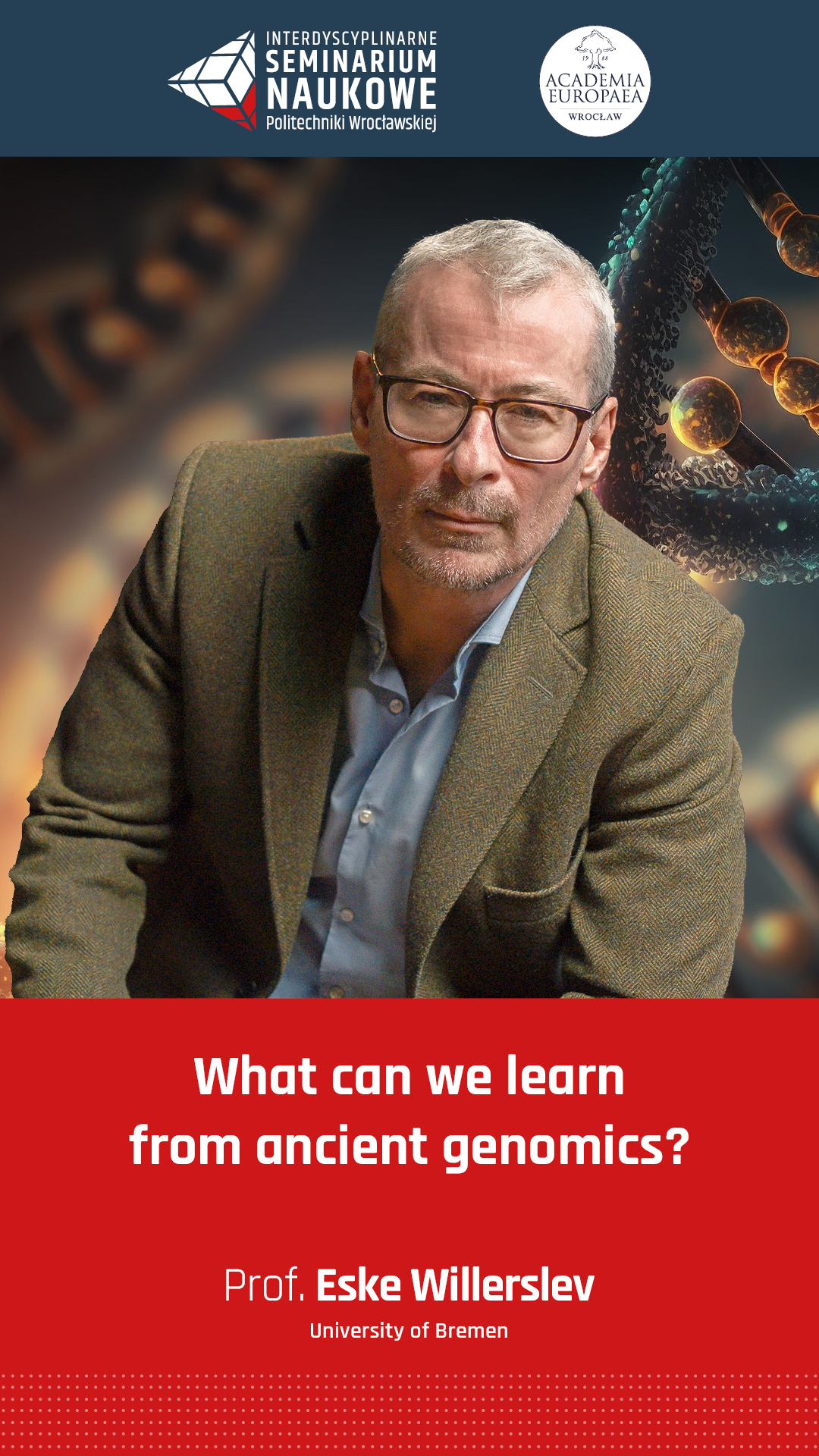YOUR BROWSER IS OUT-OF-DATE.
We have detected that you are using an outdated browser. Our service may not work properly for you. We recommend upgrading or switching to another browser.
Date: 18.03.2025
Why are we studying ancient genomes? What is environmental DNA? What is DNA degradation? Professor Eske Willerslev, a Danish evolutionary geneticist, was the guest speaker at the next Interdisciplinary Scientific Seminar.
He gave a lecture entitled ‘What can we learn from ancient genomics?’ on 9 April in the auditorium of Wrocław Tech (27 Wybrzeże Wyspiańskiego, building A-1).
The event was co-organised by the Academia Europaea Wrocław Knowledge Hub.
 Prof. Eske Willerslev is an evolutionary geneticist and researcher working in the fields of ancient DNA, DNA degradation and environmental DNA. He holds a professorship at the University of Copenhagen, where he is Director of the Centre for Ancient Environmental Genomics (CAEG), as well as a professorship at the Department of Genetics, University of Cambridge.
Prof. Eske Willerslev is an evolutionary geneticist and researcher working in the fields of ancient DNA, DNA degradation and environmental DNA. He holds a professorship at the University of Copenhagen, where he is Director of the Centre for Ancient Environmental Genomics (CAEG), as well as a professorship at the Department of Genetics, University of Cambridge.
During his PhD studies, Eske Willerslev established the field of environmental DNA. Later, his group sequenced the first ancient human genome. Willerslev’s research in the last decade has focused on macroregional history, population genomics, pathogen evolution and paleoecological reconstructions. His achievements in this field have helped to understand ancient migration patterns, the spread of specific human traits across the world, pathogen spread and evolution and ecosystem responses to climatic changes in space and time. This work has led to the rewriting of human history across Europe, Asia, Oceania and the Americas, and has changed how we track human genetic adaptations.
Eske Willerslev has published more than 300 peer-reviewed articles. He is among the Web of Science’s most Highly Cited researchers in his fields.
– We published the first ancient human genome in 2010. Since then, thousands of ancient human genomes have been published. Their studies have fundamentally changed how we look at our human history. We now know that human populations have been migrating across great distances, mixing and replacing each other ever since our ancestors left Africa some 90-60 thousand years ago and that the distribution of human populations across the World today, for large parts, derives from events taking place very late in our history, within the last few thousand years. Thus, many of human genetic adaptations were initially selected for in environments different from where they are found today.
During the lecture, the Danish scientist was discuss human history based on ancient genomics research - from Eurasia to the Americas and Australia.
Our site uses cookies. By continuing to browse the site you agree to our use of cookies in accordance with current browser settings. You can change at any time.